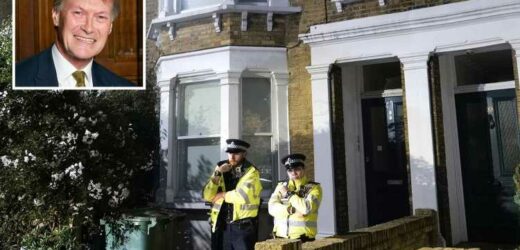LIFE-SAVING anti-terror projects were abandoned during pandemic and many are yet to restart face-to-face raising alarms that extremism could have flourished unchecked.
Scheme including some operated by the Prevent programme – were abandoned in the early days of the crisis, it is understood.
They later resumed in the form of telephone calls between extremists and their handlers, making it almost impossible for their behaviour to be properly gauged.
The projects then adopted online video calls and some face-to-face meetings.
But some crucial supervision is still taking place remotely, prompting fears that extremism has been allowed to flourish unchecked, reports the Daily Mail.
Brendan Cox, the widower of murdered MP Jo Cox, said last night: "We can’t press the pause button on counter-extremism, especially not when lockdown made online recruitment easier."
The Prevent programme’s voluntary Channel scheme, which assesses and helps individuals at risk of radicalisation, was one of the key projects to suffer last year.
It normally deals with 600 to 700 individuals at any one time, but its activities were carried out by phone for weeks, or even months, before moving to video conferencing.
Some face-to-face meetings with individuals assessed to pose a lower threat have yet to resume, it is understood.
Sources said the absence of face-to-face contact made it more difficult for officials, including police officers and psychiatrists, to assess individuals’ truthfulness and their compliance with the programme.
Another scheme, called the Desistance and Disengagement Programme (DDP) – which can be compulsory for known terrorists – followed a similar pattern of telephone and online contact.
A similar scheme in jails, called Healthy Identity Intervention, also came to a halt, it is understood.
Hannah Baldock, of the counter-terror think-tank the Henry Jackson Society, said: "When this scheme acts as the Government’s first line of defence against terrorism, these shortcomings are deeply concerning.
‘The Government must urgently explain what measures are now being taken to mitigate the effects of this arm’s-length mentoring."
Separately, a Home Office-commissioned report that called for an urgent law change making it illegal to glorify terrorism has still not received an official response eight months after it came out.
The report published in February by the Commission for Countering Extremism said extremists can currently operate ‘lawfully, freely and with impunity’ providing they stop short of directly encouraging violence or terrorism.
But its findings are still being considered by the Home Office.
A further troubling delay, set out in the Mail yesterday, has involved a review of the entire Prevent scheme.
The Government promised a review at the beginning of 2019 but it did not begin work until this year and its findings are yet to be published.
The Home Office said: "During Covid-19, Prevent continued to provide intervention sessions… sometimes face-to-face but in some instances via telephone.
"Now with the end of restrictions, most Prevent providers and Channel panels are able to operate in person."
Source: Read Full Article




